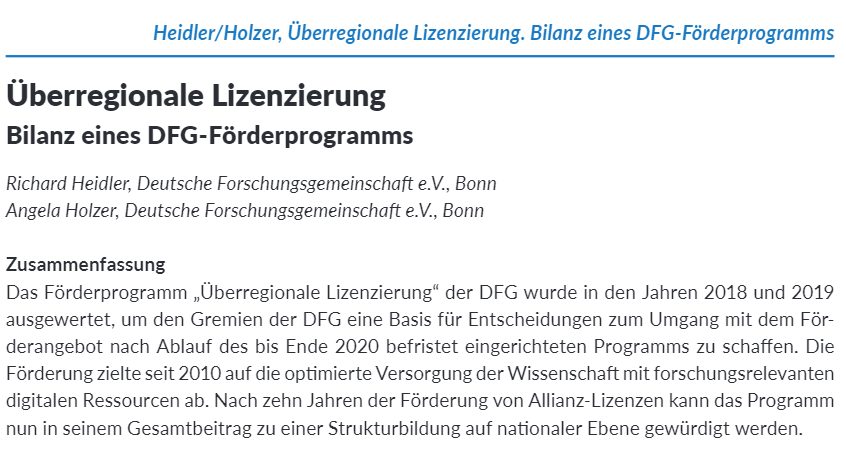Licensing for Digital Content
Review of a DFG funding program

Since 2010 the German Research Foundation’s (DFG) “Licensing for Digital Content” funding program has aimed to optimize the supply of research-relevant digital resources to the scientific community. After ten years of funding alliance licenses, the program has now been analyzed in its overall contribution to structure building at the national level.
As the study shows, the digital information supply to science in all subjects and across all disciplines has been improved by the funding. This is clear from the development of the degree of dissemination (participants) and the relevance of the offerings (use). In particular, the funding has brought added value with regard to the financing of “moving walls”, which have enabled Germany-wide access to scientific content with a time delay. Furthermore, the funding has optimized the purchase conditions for the products. The economic efficiency of the funded products was given, however, many licenses were not funded due to the financial offer conditions. Overall, the negotiations at the national level have contributed to more transparency with regard to the conditions and have had standardizing effects on other contractual contexts, e.g. in the regional consortial environment, through the principles for promotion.
Other detailed results consist of an analysis of the benefits of the innovative licensing models or value-added components to be implemented through the grant. These include the open access (green road) scheme, hosting, and text-and-data mining. The value-added components were negotiated and implemented with varying degrees of success.